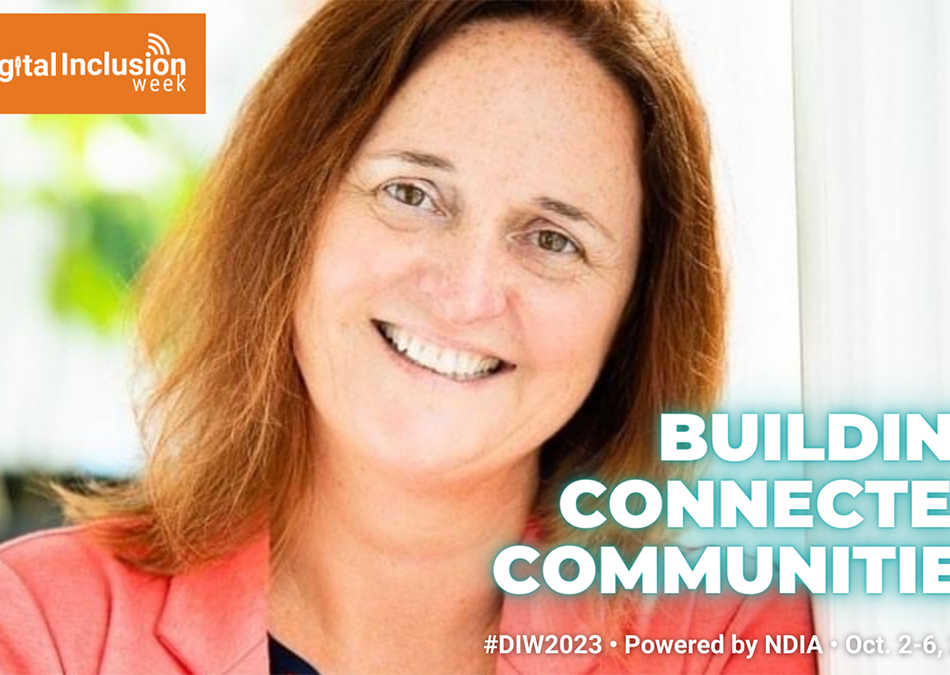If two words could aptly describe Dana A. Draa, it would be passion and intention. Draa, the Network Director-Metrolina at Veterans Bridge Home, was involved in the early iterations of the workgroups that would ultimately become the Center for Digital Equity. Draa represented individuals with disabilities and later expanded to include the veteran population. She is not new to this work and has strongly advocated accessibility for years.
Before joining Veterans Bridge Home, Draa served three years as Metrolina Association for the Blind’s Chief Program Officer and 11 years as Visual Impairment Services Team (VIST) Coordinator for the Department of Veterans Affairs- Health Administration in Charlotte. Having worked closely with veterans and individuals living with disabilities, Dana personally witnessed the challenges they faced when trying to access digital content and services and other resources in general.
The Question of Accessibility – One Size Doesn’t Fit All
Even as recent as two years ago, Draa said that when she was searching for information about digital equity and accessibility, resources were scarce. What makes the CDE unique is that accessibility is included in the conversation about digital equity. Draa explains that digital accessibility is of paramount importance and is crucial because there are individuals who face significant barriers to accessing information. She asserts that the conversation doesn’t necessarily mean we must equate the two, but it’s essential to recognize and consider the challenges faced by individuals with physical and mental disabilities. It can often be a sizeable effort to connect them with the necessary information and resources.
“The Center for Digital Equity has done a very good job of understanding the overarching needs of the community by having these focus groups, by asking the questions, by sending their folks to training, so they understand these things,” says Draa. “ And that is, that’s a good example of taking feedback and putting it into action. If you’re going to make something the most anything, action is very much needed, but so is listening, and so is understanding …This is important not only for ensuring equitable access but also for setting our digital equity team apart.”
It’s about recognizing the various avenues to achieve accessibility–not confined to the conventional approaches. It involves training people to adopt a different mindset, to think more flexibly, and to be open to diverse solutions rather than sticking to a one-size-fits-all approach.
Veterans Home Bridge and the CDE
Draa assists veterans on various stages of their journey in her work at Veterans Home Bridge. Some even start with homelessness and may not have the money to get needed technology (laptop, tablet, phone, etc.) and need to start over. That’s where the alliance with the CDE becomes essential.
“That’s where that partnership is important, particularly if we’re reaching out to the Center for Digital Equity and say, Is there a way that we could provide them with a laptop because there’s not a straight path in the VA, you can’t just go to the VA as a veteran and say, I need a laptop,” says Draa. “That’s not how that works. There has to be a mitigating reason. But if I’m a veteran who doesn’t have a disability, and I don’t have enough money to get a device, I still need that device to start my new life. And that’s where that benefit comes in. And that’s what we’ve seen here at Veterans Bridge Home; we just haven’t been as plugged in. So we’d say that this is the genesis of the new relationship, particularly because it’s incredibly important for all the areas we cover– employment, resources, and tribe.”
Equity Can’t Exist Without Accessibility
Draa’s commitment to championing digital accessibility is palpable as technology continues to play an ever-increasing role in all of our lives.
“I think digital equity is accessibility,” she reminds us; “you cannot have one without the other because if somebody cannot access something, then it’s not equitable, right? It’s a higher level threshold to hold ourselves to.”
Draa’s work reminds us that it’s not enough for these tools to be available—they must be accessible to all. Her dedication is an inspiring example of how one person’s passion and advocacy can lead to positive change on a broader scale.
1
Photo above: Dana Draa, Network Director – Metrolina at Veteran’s Bridge Home
